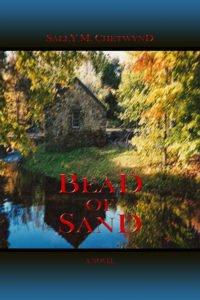
Friday, February 5, 2021
What Do Readers Want?
I’m not quite sure what to make of this or how to go about it. With a wide variety of readers, how can I know what you want to read? And you – over here – do you want to read the same stuff that you – over there – want to read? The simple answer (in an effort to avoid the complex answer!) is for me to write what I want to write, and if you, the reader, like it, you’ll read more of my offerings.
Writers often encounter another issue, related in a cockeyed way: a non-writer informs you (the writer) that you have to write what he or she wants addressed, whether or not you have any passion for or expertise in the subject.

Writers who expect their material to be read do need to consider the interests of their readers, but first and foremost, they must write what inspires them. Without inspiration, there is no dedication, no commitment, no heart in the work, be it fact or fiction. When the Muse knocks down your door and tells you to work on THIS, you’re wise to obey. Otherwise, the Muse will not let you be. (Warning: When you submit, it goes away for a while, only to cook up something new to smack you up aside the head with.)
By the same token, it’s important to permeate the work with one’s own motivation – not a dull recital of facts, but creatively arranged material that engages readers on a personal level, what Quintilian (below) is driving at.
There’s something deeper here, in the idea of digging to find out what your readers want to read. I need to do some digging to determine what it means. But there’s no denying that a writer’s work opens up a conversation with a reader. It is a two-way street.
In that respect, the writer and the reader both are exploring new territory, internal and external: many writers write to find out what the story is about; many readers read to find out the very same thing.
Pretty cool, huh? Let’s break trail together!
To Tease Your Mind
reader to understand us, but so that it is impossible
for him to misunderstand us.
 Quintilian (Marcus Fabius Quintilianus)
Quintilian (Marcus Fabius Quintilianus)Do you suppose he had any clue how everlasting his statement was? In his day, he likely was imparting wisdom to his contemporaries. We benefit from it millennia later because he wrote it down.
Was everything Quintilian wrote full of such sagacity? Unlikely, any more than any of the rest of us. Given the limited writing materials in his day, he would have prepared his drafts on soft clay tablets, easily edited before they dried, and once polished to his satisfaction, committed the final version to papyrus, vellum, or parchment, more expensive but far easier to distribute to his followers.
Much of our own writing today is not deeply meaningful, and much of it is not intended to be. But even written works of pure entertainment can contain gems of insight, often as a fictional character discovers a vital life lesson. Nuggets of uncanny discernment show up with surprising frequency in correspondence from friends, who are just chatting.
An angle I see on Quintilian’s quote is that we writers should never disparage our own writing as insignificant or unworthy. Especially when beginning a story, I have to write down everything that comes to mind – good, bad, and indifferent – then sort through it afterward. Yes, it looks like a pile of horse manure, but I keep digging because I know there’s a pony in there.
Natterings & Noodlings: The Oat vs. The Sweet Tooth
After many decades of wrangling, sugar and I have found a middle ground. I like certain sweet things, like anyone else, but from the first my body drew a line in the sand over which it will not go. It took years to discover not only that the line existed but also where it was. So this is a tale about the détente between sugar and me.
I’m the fourth of five children, not quite four years older than my younger brother, Dana. In days of yore, women spent at least a week in the hospital after delivering a baby. So when Dana came along, Daddy took Mama to the hospital, then came back home to tend to the rest of us.
Daddy was not a cook, but four youngsters needed to be fed, so he did the best he could. He knew how to make oatmeal, so he cooked oatmeal one night and set steaming bowls of it, spiked with syrup and brown sugar, in front of each of us. Billy, Ben, and Duffy devoured theirs, happy as could be. I sat and glared at mine, shoved it around with my spoon, and refused to touch it.

Daddy told me that I could not leave the table until I ate it. I sat there on the kitchen bench with my back to the windows, glancing now and then at the clock on the wall over the stove. I stayed awake until at least nine that night, quite late for a three-year-old. By then, not only was the oatmeal cold, but it had solidified into concrete. I fell asleep at the table. The next thing I remember was waking up in my bed the next morning.
The next day, Daddy visited Mama at the hospital and tattled on the recalcitrant child. “Your daughter refused to eat her oatmeal last night at supper,” he huffed. He was disgruntled enough with me to ignore his paternity.
“Of course not,” Mama replied matter-of-factly. “She hates oatmeal.”
“Oh.”
I couldn’t figure it out: I knew cooked oatmeal was good food and I wanted to like it. I couldn’t imagine anything more comforting than a bowl of hot oatmeal on a sub-zero morning. I would eat rolled oats, dry, out of the box, I loved oatmeal-chocolate chip cookies, and I’d even chew the oats from the grain bins at the horse barn where I took care of horses.

whole, steel-cut, rolled, quick, bran, flour, etc.
On camping trips in college and after, I packed oatmeal with my rations, figuring I’d get hungry enough to eat it. Nope.
During the hippie era, when granola was all the breakfast rage, I sampled many varieties, but never found one I liked. I tried a couple recipes, but the results were too dismal to encourage further trials. A batch yielded at least two weeks’ worth of breakfasts. Any given recipe called for at least a cup of this and a cup of that of twenty-odd ingredients. But I ate it despite hating it. Having invested at least twenty (1970s) dollars for the ingredients, I wasn’t about to throw it out to the birds. (grimly chewing, chewing, chewing …) This stuff resembled that of the fictitious sponsor of NPR’s “A Prairie Home Companion,” Raw Bits, a breakfast cereal made from “oat hulls and wheat chaff – it’s not for everybody.”
Commercial breakfast cereals that appealed to me had little or no sugar in them – Kix (a favorite before I could walk or talk), Cheerios, Shredded Wheat (resembling a slightly flattened hay bale), Grape Nuts.
It was a long time before things added up in my head. With baby steps at “1 + 1 = 2,” it was an epiphany: I don’t want “sweet” for breakfast. Sugar on my cereal or grapefruit, doughnuts, pastries, sweet rolls, muffins, toast with jam, pancakes or French toast with syrup? Nope! Nada! Nein! Not for breakfast, thank you!
And not a lot of other times, either. When Mama baked a sheet cake for dessert. I’d beg her to cut a piece from it for me before she frosted it. Later as an adult, I puzzled about the purpose of frosting in the first place – I didn’t want it; why did everyone else? – and then realized that frosting keeps the cake fresh. Duh! But that wasn’t a problem for me – I wanted to eat my cake when it was fresh. Cake should be so good that it doesn’t last long enough to be kept fresh. Therefore, no frosting.
Then there’s birthday cake. My birthday falls a few days after New Year’s Day. Thanksgiving kicks off the annual holiday sugar orgy. By the time the New Year rolls around six weeks later, I can’t bear even the idea of sweets. So I defer my celebration until February or April, by which time my taste buds have recuperated.
About ten years ago, I got to thinking again about hot oatmeal cereal and began to experiment, finally advancing to the “2 + 2 = 4” level. Everybody always puts some kind of sweetener on oatmeal – sugar, honey, brown sugar, molasses, honey, maple syrup. It wasn’t the oatmeal I hated, it was the sugar it was laced with.
I tried grated cheese in my oatmeal. Weird, not bad, but not exciting. Then I tried peanut butter. Again, weird, not bad, but not exciting. Then I thought about what folks do with other cooked grains. Didn’t Southerners put salt and pepper and butter on their hominy grits? That was worth a try.
Eureka! The simple comfort of warm food (thin enough to spoon, thick enough to satisfy the tongue), that savory flavor from the butter (only real butter, none of this margarine junk), the masculine chewiness of the oats (only rolled oats, quick oats are too mushy). Breakfast bliss!
Two hundred and fifty years ago, the Englishman Samuel Johnson, made famous when James Boswell wrote his biography, remarked that “in England, we wouldn’t think of eating oats. We only feed them to horses.” Scotsman Boswell replied, “Well, maybe that’s why in England you have better horses, and in Scotland we have better men.” Oats became the mainstay of Scotland’s diet because the grain flourished in the harsh climate that unnerved other grains.

A man of Scottish descent, Donald Ferguson, a Boy Scout leader with my father in the 1950s and 1960s, generously gave his mother’s recipe for Scottish oat cakes to my mother. They cleanse the palate during the holidays when the tongue (and one’s whole body) is overwhelmed by an excess of sugary treats. They are made of nothing more than rolled oats, flour, real butter, a bit of sugar, baking powder, salt, and water. It didn’t take long for them to become a year-round family favorite. They are savory in contrast to sweet, buttery with the touch of salt, and chewy leaning toward crispness. They are actually nutritious!
So I’ve been eating hot cooked oatmeal ever since, much to the amusement of my husband. How sad that I missed out on such wonderful food for fifty years. But as they say, better late than never.
The Book Shepherds
 Judith Briles is a book-publishing coach. She works with writers serious about authorship, and conducts workshops and webinars on publishing, public speaking, and marketing. She’s the author of 37 books, non-fiction works on these subjects.
Judith Briles is a book-publishing coach. She works with writers serious about authorship, and conducts workshops and webinars on publishing, public speaking, and marketing. She’s the author of 37 books, non-fiction works on these subjects.
What I like about Judith is the uplifting, positive attitude she infuses in her newsletters. She always has practical suggestions for making one’s writing better, for building one’s online presence, for protecting one’s interests – you name it. Her newsletter for February 3, 2021, is named “5 Steps to Overcome Author Procrastination for 2021.” Each step is bite-sized, manageable in face of the mountain of distractions that plagues us all to one degree or another.
Check out Judith, her website, and her newsletter. You won’t regret it.
The Book Shepherds
Website: https://thebookshepherd.com
E-zine: https://thebookshepherd.com/author-newsletter.html
Blog: https://thebookshepherd.com/author-publishing-book-blog.html
Word’s Worth
Oxford English Dictionary
oat – from Middle English ote; Saxon (Germanic)
- dating from c. 1000
- from several species of grasses native to the British Isles
- the grains of a hardy cereal
- the grain Avena sativa, cultivated in all cool climates
- a pipe made of an oaten straw as a pastoral instrument of music
- to feed (a horse) with oats
Merriam-Webster.com
oat – from Middle English ote
- dating from before the 12th Century
- possibly originating from regional Dutch aate, oote
- perhaps originally from German, meaning “food”
- any of several grasses (genus Avena)
- a reed instrument made of an oat straw (archaic)
Trivia
“Oats” are linguistically unlike other grains in that it is referred to, in bulk, in the plural; the singular, oat, meaning an individual grain. All other grains use the same word to denote singular and plural – wheat, barley, rye, millet, rice, maize, etc. (Oxford English Dictionary)
Conversations
Do you have comments or questions about this post?
I’d love to hear them. Let’s talk!
Happy reading! Happy writing!
Sources
Image: Dog in the middle
https://www.gettyimages.com/photos/dogs-tug-of-war?page=2&phrase=dogs%20tug%20of%20war&sort=mostpopular
Image: Quintilian
https://www.laphamsquarterly.org/contributors/quintilian
Image: hot oatmeal
https://www.plantsbycreekside.com/blog/pease-porridge-hot/
Image: Types of oats
https://www.jessicagavin.com/types-of-oats/
“Raw Bits” from Garrison Keillor’s “A Prairie Home Companion”
https://en.wikipedia.org/wiki/A_Prairie_Home_Companion
Image: Oat plants
https://www.britannica.com/topic/oats
Image & Link: Judith Briles, The Book Shepherds
https://thebookshepherd.com



